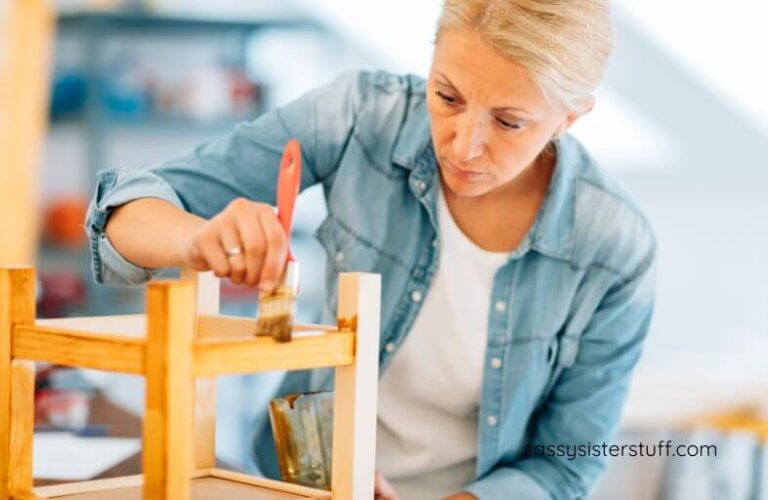15 Gentle Steps to Heal When You Feel Emotionally Broken
Feeling emotionally broken can leave you tired, sad, and unsure of where to go next. It may come from heartbreak, trauma, loss, or simply carrying too much for too long. Healing doesn’t happen overnight, but taking small, steady steps can help you find peace again.
With time, care, and patience, your heart can feel lighter, and your spirit stronger. Here are 15 gentle steps to begin your emotional healing journey.
Allow Yourself to Feel

The first step to healing is letting yourself feel whatever comes up. Don’t rush to hide your emotions or pretend everything is okay. Cry if you need to, rest if you’re tired, and permit yourself to be human. Pushing your feelings away can delay the healing process. Feeling is part of how we process and move forward.
Talk About It with Someone You Trust

Sharing your thoughts with a friend, family member, or counselor can bring comfort and clarity. You don’t have to go through your pain alone. Sometimes just being heard can make a big difference. Talking can also help you understand your emotions better. Let someone in who truly cares.
Write Your Thoughts Down

Journaling can help you release emotions you’re holding inside. Write about your feelings, your memories, or even things you wish you could say out loud.
Putting it on paper helps you organize your thoughts and track your healing over time. It’s a safe space where you can be completely honest. Your journal can become a source of strength.
Give Yourself Time

Healing doesn’t follow a set schedule. You might feel okay one day and overwhelmed the next, and that’s normal. Be patient with your ups and downs. There’s no deadline to be “over it.” Trust that healing happens in its own time.
Set Small, Daily Goals

Doing one simple thing each day—like taking a walk, making your bed, or eating a healthy meal—can help you feel more in control. Small goals give you purpose and build momentum. When you’re emotionally hurt, even tiny wins can feel like big steps. Celebrate them. They matter more than you think.
Avoid Negative Self-Talk

It’s easy to be hard on yourself when you’re hurting, but it only makes things worse. Try to speak to yourself the way you’d speak to a close friend. Be kind, gentle, and forgiving. You’re doing the best you can. Your inner voice can be a source of healing or hurt—choose healing.
Surround Yourself with Support

Spending time with people who lift you up can ease your pain. Avoid those who make you feel worse or drain your energy. Look for company that feels safe, calming, and caring. Even a few kind people can make a big difference. You deserve to feel supported.
Get Outside and Move Your Body

Fresh air, sunlight, and light movement can help clear your mind and boost your mood. You don’t need a tough workout—just a short walk, some stretching, or a few deep breaths outdoors.
Nature has a calming effect that helps the healing process. Moving your body helps release stuck emotions. It can bring moments of peace on hard days.
Take Breaks from Triggers

If certain places, people, or social media accounts bring up painful feelings, it’s okay to step back for a while. Protecting your peace is part of healing. Give yourself space to feel safe and grounded again. It’s not avoidance—it’s self-care. You can re-engage when you’re ready.
Focus on What You Can Control

When everything feels overwhelming, try to focus on the little things you can manage. Clean your room, cook a simple meal, or stick to a basic routine. These small actions remind you that you’re not helpless. Control what you can, and let go of what you can’t. Little wins create a sense of stability.
Practice Self-Compassion

You may feel broken, but you’re still worthy of love and kindness, especially from yourself. Treat yourself with the same care you’d give to someone who’s hurting. Take time to rest, nourish your body, and speak kindly to yourself. You don’t have to be perfect to deserve peace. Self-compassion is powerful medicine.
Reflect on What You’ve Learned

Pain can teach us things we wouldn’t have learned otherwise. When you’re ready, think about what this experience has shown you about yourself, your needs, and your boundaries. Growth often comes from difficult seasons. You are becoming stronger and wiser. These lessons will help you in the future.
Forgive at Your Own Pace

Forgiveness isn’t always about the other person; it’s about freeing yourself from ongoing pain. That doesn’t mean forgetting or excusing hurtful behavior. It means choosing peace over bitterness when you’re ready. Take your time, and don’t force it. Forgiveness is part of healing, but only when it feels right.
Do Something That Brings You Joy

Even on hard days, try to do something small that makes you smile. Watch a favorite movie, make something with your hands, or spend time with someone you love. Joy doesn’t erase pain, but it reminds you that life still holds good moments. Bit by bit, those moments will grow. Let happiness back in slowly.
Believe That Healing Is Possible

No matter how deep the pain feels now, it won’t last forever. You have the strength to move through it, even if you don’t feel it yet. Trust that your heart can heal, and your spirit can rise again. Hold onto hope, even on your hardest days. Healing isn’t about forgetting; it’s about finding peace again.
Related: 15 Clever Hacks To Reduce That Never-Ending Grocery Bill

Managing grocery expenses can be challenging for many households, especially with rising food costs and fluctuating budgets.
However, with some creativity and resourcefulness, you can implement numerous clever hacks to reduce your never-ending grocery bill without sacrificing the quality or variety of your meals.







